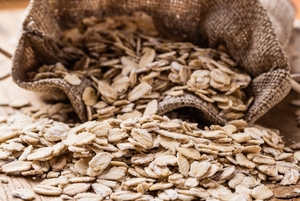How Your Gut Bacteria Can Influence Weight
1. By affecting your appetite and food cravings. Certain gut bacteria can produce hormones that stimulate hunger and cravings for unhealthy foods. Other gut bacteria can help to produce hormones that suppress appetite and cravings.
2. By altering the way your body absorbs nutrients. Some gut bacteria can help your body to absorb more nutrients from the food you eat, which can lead to weight gain. Other gut bacteria can help to reduce the absorption of nutrients, which can lead to weight loss.
3. By causing inflammation. Chronic inflammation is associated with a number of health problems, including obesity. Certain gut bacteria can produce inflammatory compounds, while other gut bacteria can help to reduce inflammation.
4. By interacting with your immune system. The gut microbiome plays an important role in the development and regulation of the immune system. Dysbiosis (an imbalance of gut bacteria) has been linked to a number of immune system disorders, including obesity.
5. By affecting your metabolism. The gut microbiome is involved in a number of metabolic processes, including glucose metabolism, lipid metabolism, and bile acid metabolism. Dysbiosis has been linked to abnormalities in these metabolic processes, which can lead to weight gain.
It is important to note that the relationship between gut bacteria and weight is complex and not fully understood. More research is needed to determine exactly how gut bacteria influence weight.
-
Stay Hydrated
Need another
-
Whole30 Diet: What To Know
Overview
-
Delicious Green Smoothie For Cleansing The Body of Toxins
Abundance of food and drinks sounds like a gourmet’s dream,
-
Fast Weight Loss Diet
A healthy diet for weight reduction includes a lot of valuable prot
-
Nutrition and Eating: Friends for Life
Nutritional Needs I’ll bet that you’ve n
-
Remove All Toxins From the Body in 3 Days: A Method That Prevents Cancer, Removes Fat and Excess Water!
Although we are all aware that processed and unhealthy foods do mu
- Weight Loss Diet
- Conquer Your Stomach Pooch: Should You Get a Tummy Tuck?
- Healthy Diet Delivery is the Best Option for Weight Loss
- Healthy diet – The importance of fiber
- Why the Fasting Diet is a Diet Myth
- This Incredible Detox Drink Helps You Burn Fat, Boost Metabolism, Fight Diabetes And Lower Blood Pressure
- What Is Dieting? How Should Your Diet Plan Compliment Your Weight Loss Plan?
- High Protein Diet For Weight Loss
- Nut Diet
- Low Carb Dieting Tips: When You Reach Your Plateaus
- Ginger, Honey And Cinnamon Tea For Weight Loss



